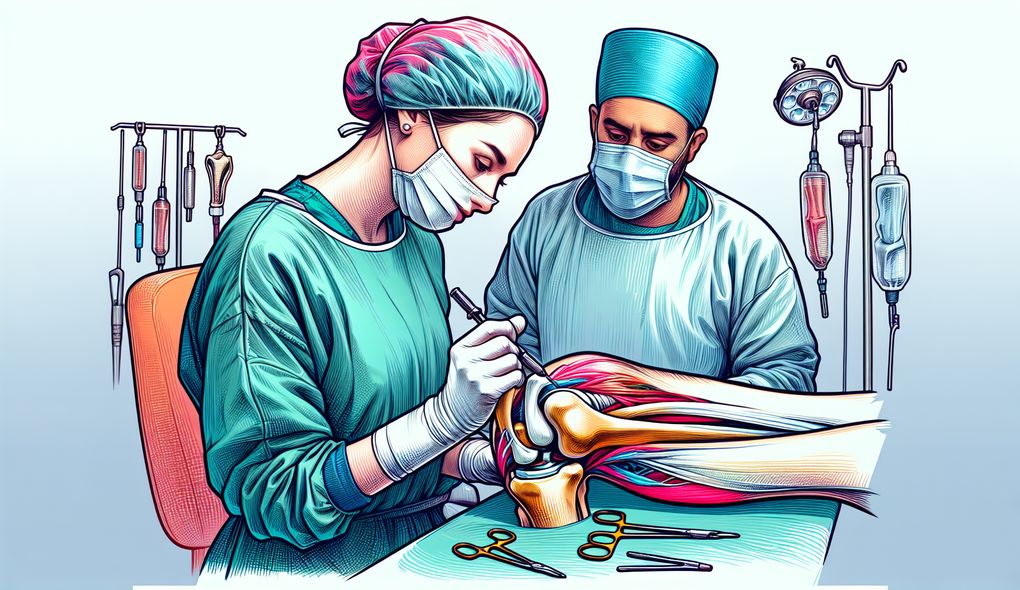How do you manage your time and prioritize tasks in a fast-paced surgical environment?
JUNIOR LEVEL

Sample answer to the question:
In a fast-paced surgical environment, managing time and prioritizing tasks is crucial. I use a few strategies to stay on top of things. First, I create a daily schedule with specific time slots for each task. This helps me allocate the right amount of time for each surgery, patient consultation, and administrative work. Second, I prioritize tasks based on urgency and importance. I always tackle the most critical cases first to ensure patient safety. Third, I delegate tasks to my surgical team whenever possible. This helps distribute the workload and allows me to focus on surgeries. Lastly, I stay organized by using digital tools like calendars and task management apps to track my progress and deadlines.
Here is a more solid answer:
In a fast-paced surgical environment, effective time management and task prioritization are crucial for delivering quality patient care. My approach begins with creating a detailed schedule that allows me to allocate appropriate time for each surgical procedure, patient consultation, and administrative task. I prioritize tasks based on their urgency and impact on patient outcomes. For example, urgent surgeries or cases with higher risks are moved to the top of the priority list. To handle the high-stress situations that can arise, I rely on my calm demeanor and the ability to make quick decisions under pressure. Additionally, I delegate tasks to my surgical team to ensure efficient workflow. I also utilize digital tools, such as calendars and task management apps, to stay organized and track progress. Overall, my goal is to maintain a balance between speed and accuracy while always prioritizing patient safety and well-being.
Why is this a more solid answer?
The solid answer provides specific strategies for managing time and prioritizing tasks in a fast-paced surgical environment. It also addresses the candidate's ability to handle high-stress situations, which is mentioned in the job description. However, it could still benefit from more specific examples of how the candidate has successfully managed their time and prioritized tasks in the past.
An example of a exceptional answer:
In a fast-paced surgical environment, I have honed my time management and task prioritization skills to ensure the highest quality of care for my patients. My approach begins with creating a well-structured daily schedule that allows me to allocate dedicated time for surgeries, patient consultations, administrative tasks, and personal time for self-care and rejuvenation. While prioritizing tasks, I consider both urgency and importance, evaluating the impact on patient outcomes. For instance, I prioritize urgent surgeries while also considering cases with higher risks or complexity that require specialized attention. To handle high-stress situations, I rely on a combination of skills. These skills include maintaining a calm and composed demeanor, making swift decisions under pressure, and effectively communicating with my team and other healthcare professionals. Furthermore, I delegate non-clinical tasks to my surgical team, allowing me to focus on surgeries and critical patient care. Leveraging modern digital tools like advanced scheduling software, I always keep track of my tasks and progress. By constantly evaluating and refining my time management strategies, I strive to deliver exceptional surgical care in a fast-paced environment.
Why is this an exceptional answer?
The exceptional answer provides a comprehensive and detailed approach to managing time and prioritizing tasks in a fast-paced surgical environment. It includes specific examples of how the candidate balances their schedule and prioritizes tasks based on urgency and impact on patient outcomes. It also highlights the candidate's ability to handle high-stress situations and effectively communicate with the surgical team. Additionally, it mentions the use of digital tools to stay organized and track progress. This answer demonstrates the candidate's expertise in time management and task prioritization, which are critical skills for the role.
How to prepare for this question:
- Familiarize yourself with various time management and task prioritization strategies.
- Reflect on past experiences in fast-paced environments and identify specific instances where you effectively managed your time and prioritized tasks.
- Practice staying calm and making quick decisions under pressure. You can simulate high-stress scenarios in a mock surgical environment or during role-playing exercises.
- Develop strong communication skills to effectively collaborate with your surgical team and other healthcare professionals.
- Explore digital tools and software that can help you stay organized and track your progress.
- Consider seeking feedback from colleagues or mentors on your time management and task prioritization skills, and work on improving any areas of weakness.
What are interviewers evaluating with this question?
- Time management
- Prioritization
- Working in a fast-paced environment

